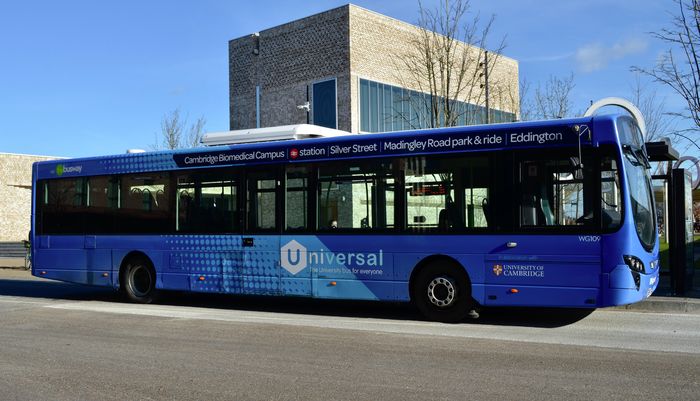Cambridge congestion charge proposal sparks backlash
The scheme, which will see a £5 toll imposed on weekdays for cars within three miles of the city centre, has been criticised by local groups

A congestion charge proposal to impose a “sustainable travel zone”, launched by the Greater Cambridge Partnership (GCP), a coalition of local councils, has faced a wave of criticism from local residents, who say the scheme will benefit students but disadvantage locals.
Between 7am and 7pm on weekdays, those who enter the zone will have to pay a toll of £5. The proposal will be implemented by 2027/28. The zone stretches about three miles out from the city centre.
The planned travel zone is part of a series of proposed reforms to expand bus networks. Other proposals include a flat £1 bus fare in the city, and a £2 fare for longer journeys. Students in the city already pay the £1 fare on the U-bus, but access to this discount would be widened out to local residents on the proposed scheme.
Peter Blake, GCP transport director, says the congestion charge aims to reduce congestion and air quality issues within Cambridge. The GCP predicts the proposals will reduce traffic by 50% in Cambridge. Public health data found that 48 deaths in Cambridge could be attributed to air pollution in 2020.
However, the proposal has sparked backlash from residents. A “Cambridgeshire Residents Group” has been set up to oppose the congestion charge, and has nearly three thousand members. A petition opposing the congestion charge has received over 21,000 signatures.
Opponents to the scheme include residents who fear that the congestion charge will “impact households and businesses who are already struggling in the current financial crisis.” Those who regularly drive into Cambridge for work may have to pay up to £1,300 a year. Indeed, nearly 70% of the University’s workforce live outside the city and therefore need to travel daily to work.
However, the GCP claims that the congestion charge will fund improved travel infrastructure, including better walking and cycling routes and lower bus fares to make services more accessible.
Speaking to The Guardian, Neil McArthur, vice-chair of the Cambridgeshire Residents Group, argued that the proposal favours University students and dons while disadvantaging local residents as “the student population and the Cambridge dons won’t suffer…They probably live and work within the city, they can walk or cycle wherever they want to go.”
McArthur also voiced concern that the University sits on the executive board of the proposals, as a non-voting statutory partner of the GCP. He suggested that “the gown” was “driving the town”.
A protest march against the proposals took place on Parker’s Piece on Sunday (27/11). In the meantime, the GCP has launched a survey on the new transport proposals, which can be found on their website.
 News / Uni partners with controversial Hong Kong university2 April 2025
News / Uni partners with controversial Hong Kong university2 April 2025 Comment / More Cambridge students should study abroad 1 April 2025
Comment / More Cambridge students should study abroad 1 April 2025 News / Hundreds of jobs to be cut at Cambridge University Hospitals1 April 2025
News / Hundreds of jobs to be cut at Cambridge University Hospitals1 April 2025 Lifestyle / A Goodchild’s Cambridge Confessional: Volume 23 April 2025
Lifestyle / A Goodchild’s Cambridge Confessional: Volume 23 April 2025 News / Caius clock hand returned nearly 100 years after student prank31 March 2025
News / Caius clock hand returned nearly 100 years after student prank31 March 2025




